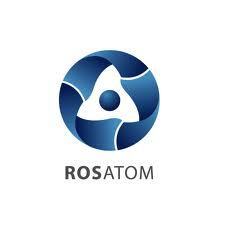por
Brendon Nafziger, DOTmed News Associate Editor | June 20, 2011
Philips Healthcare said Sunday it intends to build PET-CT, SPECT and SPECT-CT equipment in Russia by licensing technology and engineering know-how to the country's state-run nuclear energy company.
The health care giant said over the weekend it inked a memorandum of understanding with the Russian State Atomic Energy Corporation, or Rosatom, and would be the first international business to license SPECT equipment for domestic production.
The move is seen as an effort by Russia to reduce its dependence on foreign countries to supply nuclear medicine scanners. Currently, 81 percent of Russian medical equipment is manufactured abroad, Philips said.



Ad Statistics
Times Displayed: 107273
Times Visited: 6553 MIT labs, experts in Multi-Vendor component level repair of: MRI Coils, RF amplifiers, Gradient Amplifiers Contrast Media Injectors. System repairs, sub-assembly repairs, component level repairs, refurbish/calibrate. info@mitlabsusa.com/+1 (305) 470-8013
"In line with the state program of the Russian government, we intend to reach a 50 percent localization target for this medical equipment in Russia," said Mikhail Batkov, director of the radiation technologies program with Rosatom, in a statement.
Philips said the aim of the project is to create affordable devices made with the Russian market in mind. If successful, they could help increase access to a technology apparently few Russians are in reach of.
Currently, there are only seven complete PET centers in Russia, all located in Moscow or St. Petersburg, Philips said. This means only an estimated 1 to 5 percent of the population has easy access to these centers, which house both scanners and the technology, such as cyclotrons, needed to create the radioactive tracers with which patients are injected.
By comparison, in the United States, there are more than 2,000 complete PET centers, Philips said.
"Independent experts estimate there should be 140 PET centers for Russia if you want to modernize the Russian health care system," Steve Klink, a Philips spokesman, told DOTmed News. "In that sense, there's a long way to go."
But the Dutch electronics giant said the ultimate goal is not just to start local equipment production. The memorandum also sets the stage to develop an "ecosystem" of local suppliers of components, research and development, and even clinical studies for nuclear medicine.
"This goes beyond just manufacturing the scanners," Klink said.
This isn't Philips' first partnership with a Russian company to set up local production of imaging equipment.
In October, the company announced the installation of a 16-slice CT scanner at a Russian veterans hospital. The scanner - said to be the first to include a Russian language interface - was developed at the St. Petersburg facilities of Electron, a Russian firm. The two companies are also looking into domestic development of ultrasound, MRI and higher-slice CT scanners, Philips said.
Back to HCB News

